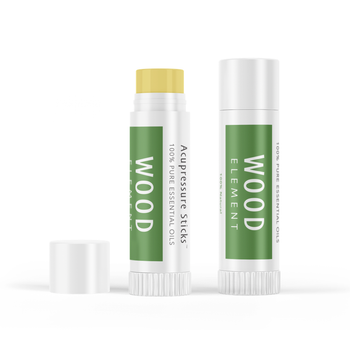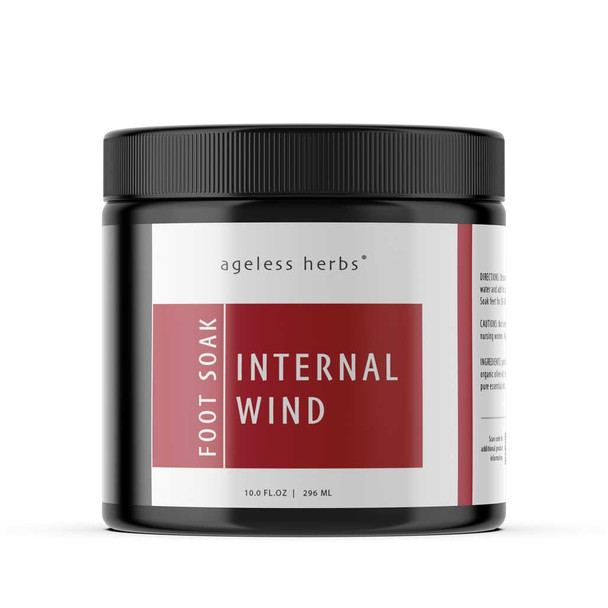Liver Qi Stagnation
Liver Qi Stagnation in Chinese Medicine
The Liver energetic system is very powerful according to Traditional Chinese medicine;
it is a Yin organ, but can be quite Yang and reactive when it’s not happy and soothed. Left unchecked, Liver Qi constraints and imbalances will develop in to aggression unleashed on other Organ Systems according to Chinese medicine. Because of this, Liver imbalances are often associated with a variety of disease patterns.
Liver Functions in Traditional Chinese Medicine
- Affects joints and eyes
- Spreads Qi of all organs in all directions
- Stores Blood
- Controls tendons
Liver Qi Stagnation
Liver Qi Stagnation, also known as Liver Qi Constraints is arguably the most common pattern of imbalance seen in western culture. The Liver controls the smooth flow of Qi throughout the body which is crucial to the health of all of the organ systems of the body.
Symptoms of Liver Qi Stagnation:
- Anger, irritability, and frustration
- Feel stuck emotionally
- Depression
- Anxiety, stress easily
- Tenderness around ribs
- Pain on the sides
- Hard to swallow-lump in throat
- Sigh often
- PMS
![]()
Acupressure for Liver Qi Stagnation
Apply the Wood Element Acupressure Stick to Acupressure Point Liver 3
![]()
Liver Yin Deficiency
Yin substances such as Blood help to keep the Liver cool and soothed. When Yin
substances are depleted in the Liver energetic organ by stress, anger, or Kidney Yin Deficiency, the Liver will begin to heat up. Look to our Free and Easy Wanderer formula and Yin Valley formula used together. In addition to the above symptoms and common Yin Deficiency Symptoms such as afternoon and evening sweats or fever, these symptoms often point to Liver Yin Deficiency:
![]()
Liver Blood Deficiency
The Liver is dependent on abundant Blood to function properly; imagine how quickly your car engine would get hot and lock up without oil for lubrication and cooling effects. The Liver heats up in a similar manner without Blood to help cool and lubricate the Liver tissue. Liver Blood Deficiency will also lead to Liver Qi Stagnation so many of those symptoms will also apply here. Blood is a Yin substance; in addition to the above Liver Yin Deficiency indications which would be indicated, here are some of the symptoms more specifically associated with Liver Blood Deficiency:
- Easily frightened
- Pale complexion and lips
- Pale Brittle Nails
- Osteoarthritis with stiffness
- Irregular and scanty menstrual flow
![]()
Liver Yang Rising
If not properly addressed, Liver Qi Stagnation, Yin Deficiency, and Blood Deficiency
Natural Herbal Therapy: Liver Detox Plaster
- sudden angry outbursts
- Red flushed face
- Red eyes with irritation
- Insomnia with troubling dreams
- Throbbing or splitting headaches
- High blood pressure
Liver Wind 
When heat rises over a fire it will produce a spinning vortex, or wind. In the body, when Liver Heat rises it also produces a pathogenic Wind. Wind can be erratic, can come and go quickly, and moves from place to place. Tremors or pain that migrates from place to place in the body are all contributed to Internal Wind in Chinese medicine including osteoarthritis which migrates to different joints. Here are some other patterns associated with Internal Wind:
- Parkinson’s disease
- Dizziness
- Stroke
- Vertigo
![]()
Symptoms of Liver Imbalance Syndromes
Like a military commander, the Liver and Wood Element help us to strategies and make plans for taking action on an emotional level. An unhappy Liver is like an angry general marching through the body and creating havoc and destruction along the way. If the previously mentioned imbalances are not properly addressed, the Liver will begin dominating and attacking other, weaker organ systems.
Liver Overacting on Stomach/Spleen
Liver Overacting on Heart
The Liver can also overact on the Large Intestine causing IBS, the Bladder causing UTI’s and pain, or Lungs contributing to breathing complications, asthma, and coughing.
![]()
Stress and Liver Qi Stagnation
In Chinese medicine, the emotions play a pivotal role in health and wellness. Obviously, the body cannot be dissected from the mind, and modern medicine has recently been finding endless connections between the emotional state of a person and their health. As part of Chinese medical theory, the Liver belongs to the Wood Element of the Law of Five Elements. A common emotional manifestation of Wood Element imbalances is the inability to deal with life stressors effectively. It is as if we are constrained from bending and swaying as a tree would when faced with life’s storms.
Liver Imbalances and Menstrual Disorders
The Liver energetic organ system stores and controls menstrual Blood. Additionally, Liver Qi Stagnation often leads to Uterine Qi and Blood Stagnation according to Chinese medicine, as the Liver regulates the Qi of the whole body. Furthermore, the Liver and Kidney energetic systems are most commonly associated with sexual hormonal imbalances. Therefore, Liver Imbalances and Liver Qi Stagnation are key culprits when addressing PMS, pre-menopausal issues, and infertility for women.
Eyes and Liver Imbalances
In Chinese medicine the Liver governs over the eyes. Liver imbalances are almost always associated as a “root cause” of all eye diseases including glaucoma, vision problems, and dry eye syndrome. Even the emotional inability to envision a future so to plan for it is attributed the Wood Element.
![]()
Arthritis, Joint Pain and Liver Imbalances
The Liver ensures that joints and tendons are well lubricated with Blood, and that Qi
and Blood circulate freely to the joints, thus keeping them healthy and flexible. As with eye diseases, joint pain and immobility almost always point to an underlying Liver imbalance. Learn more about joint health here!
Prostate, Sexual Function and Liver Qi Stagnation
The Liver acupuncture channel traverses the testicles. This channel is part of the Liver energetic system and the free flow of Qi through the channel is dependent on Liver health. Stagnation of Qi of the Liver Channel can lead to Qi and Blood Stagnation of the Prostate and male sexual organs. Learn more about men's health here!
![]()
Hong, M., Li, S., Tan, H. Y., Wang, N., Tsao, S. W., & Feng, Y. (2015). Current Status of Herbal Medicines in Chronic Liver Disease Therapy: The Biological Effects, Molecular Targets and Future Prospects. International journal of molecular sciences, 16(12), 28705–28745. doi:10.3390/ijms161226126
Li, S., Wang, N., Hong, M., Tan, H. Y., Pan, G., & Feng, Y. (2018). Hepatoprotective Effects of a Functional Formula of Three Chinese Medicinal Herbs: Experimental Evidence and Network Pharmacology-Based Identification of Mechanism of Action and Potential Bioactive Components. Molecules (Basel, Switzerland), 23(2), 352. doi:10.3390/molecules23020352
Li, S., Tan, H. Y., Wang, N., Cheung, F., Hong, M., & Feng, Y. (2018). The Potential and Action Mechanism of Polyphenols in the Treatment of Liver Diseases. Oxidative medicine and cellular longevity, 2018, 8394818. doi:10.1155/2018/8394818
Song, C., & Xue, L. (2017). Roles of the µ-opioid receptor and its related signaling pathways in the pathogenesis of premenstrual syndrome liver-qi stagnation. Experimental and therapeutic medicine, 13(6), 3130–3136. doi:10.3892/etm.2017.4374
He, Z., Fan, R., Zhang, C., Tang, T., Liu, X., Luo, J., … Gan, P. (2019). Chaihu-Shugan-San Reinforces CYP3A4 Expression via Pregnane X Receptor in Depressive Treatment of Liver-Qi Stagnation Syndrome. Evidence-based complementary and alternative medicine : eCAM, 2019, 9781675. doi:10.1155/2019/9781675
Chen, Z. Q., Chen, G. L., Li, X. W., Zhao, Y. Q., & Shi, L. J. (1999). Plasma L-ENK, AVP, ANP and serum gastrin in patients with syndrome of Liver-Qi-stagnation. World journal of gastroenterology, 5(1), 61–63. doi:10.3748/wjg.v5.i1.61
This information has not been evaluated by the Food and Drug Administration. This information is not intended to diagnose, treat, cure, or prevent any disease.
